
English | 中文

Mapping the New Era to Promote Development with CSR Standards
source:goldencsr date:2018-06-26 11:02:32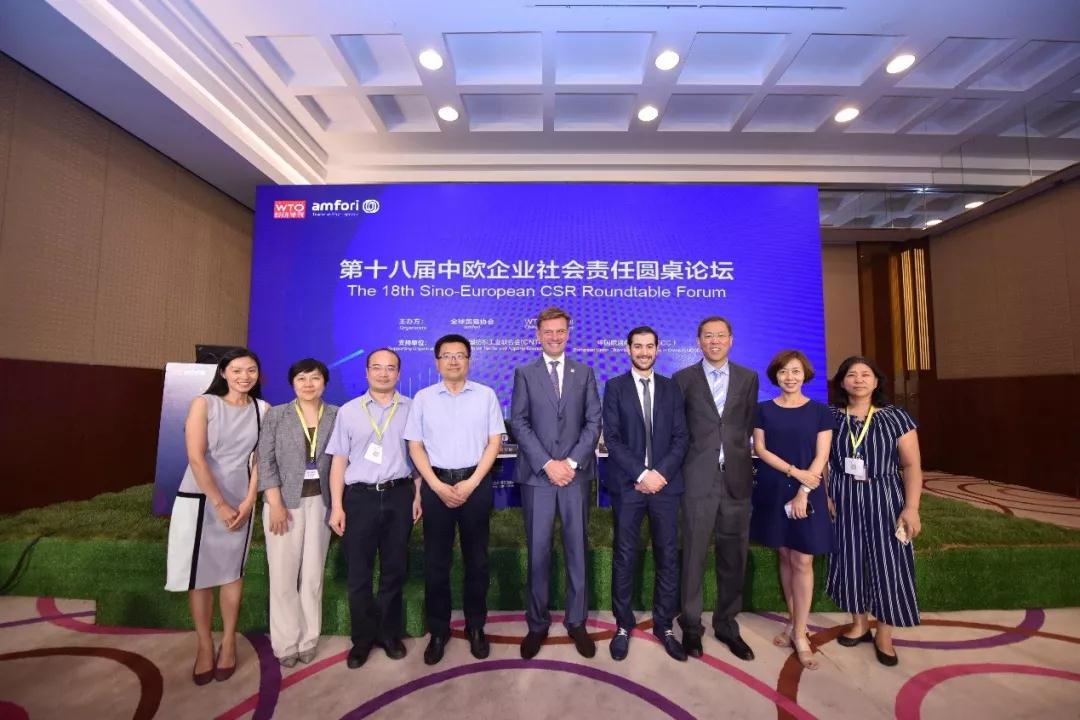
The 18th Sino-European CSR Roundtable Forum, co-hosted by amfori(amfori formerly known as Foreign Trade Association) and China WTO Tribune and supported by China National Textile and Apparel Council (CNTAC) and The European Union Chamber of Commerce in China (EUCCC), was held on June 5 in Beijing.
Focusing on “Mapping the New Era to Promote Development with CSR Standards”, this forum responded to the requirement of “strengthening the standardization work to improve the quality of products and services” proposed by the Standardization Law (2017 Revision) and gathered representatives from the Chinese government, CSR organizations, NGOs, business associations and academia, and sustainability experts to share their perspectives on how to transform CSR standards into action guides and solutions that can guide the sustainable development of enterprises in the new era.
Mr. Xu Hua, Director, General Division, Department of Policies, Laws and Regulations, Ministry of Industry and Information Technology(MIIT), reviewed the Department’s work about promoting social responsibility standards and shared relevant experiences.
The Department of Policies, Laws and Regulations actively promotes the formulation of social responsibility standards, initiates pilot enterprises and projects to promote the standardized and comprehensive implementation of social responsibility work, and also promotes the interconnection of local standards and international standards through deepening international cooperation.
In the future, the Department will continue to strengthen the CSR development of the ICT industry, give full play to the leading role of enterprises, and create a better policy environment for them to fulfill responsibilities, and serve the strategy of building China into a manufacturing power and a network power.
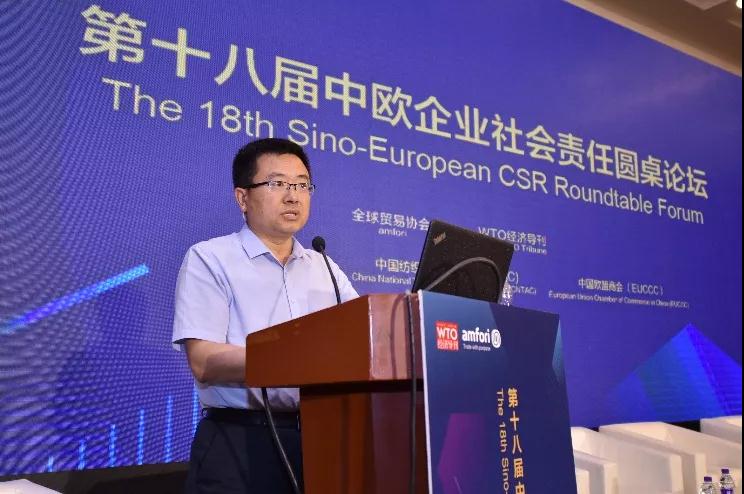
Mr.Christian Ewert, Director General, amfori, by citing the 25th anniversary of the European Union and the 40th anniversary of China’s Reform and Opening Up, praised the prosperity of all economies driven by their successful implementation of standards. He said that standardisation can help to maximise compatibility, interoperability, safety, consistency, and quality and reduce cost of duplication, and ideally, can provide solutions for a coordination problem. He pointed out that it is also important to understand that standards can be a double-edged sword. They can be either facilitators or obstacles to sustainable development.
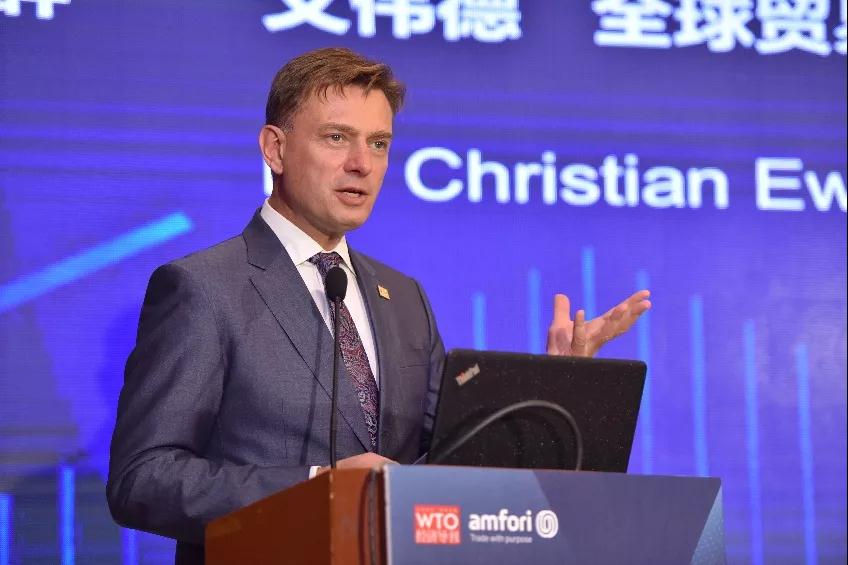
Mr. Chen Yuanqiao, Researcher of China National Institute of Standardization (CNIS), setting the CSR development trend as the clue, emphasized that all parties should try to balance the interests of more complicated stakeholders in the globalization process, which requires more standardized and internationalized standards. He suggested to promote the integration of standardization of social responsibility into the overall business operation, and provide corresponding management tools in the standard to realize the close integration with the existing management of enterprises.
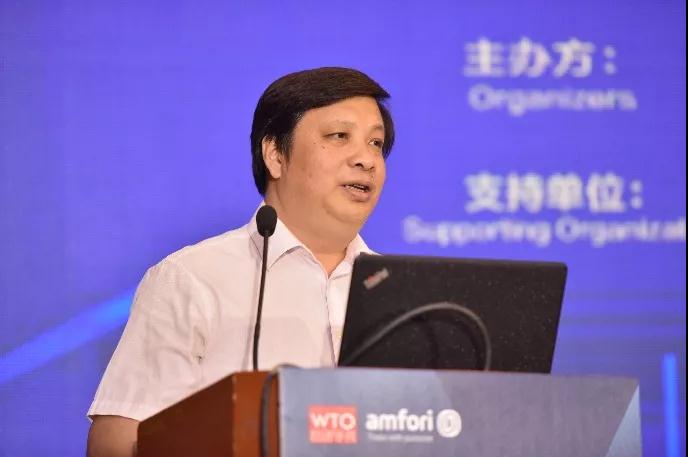
Ms. Yan Yan, Director of Office for Social Responsibility of China National Textile And Apparel Council (CNTAC), reviewed their work on industrial CSR system and standards. The Association adjusts the CSC 9000T system of the textile and apparel industry according to the industry development and the application practice, and continuously update it; it also provides supporting capacity building in applications, including building resource centers and corresponding platforms, to support the application of this system and practice.
Moreover, the Association continues to strengthen cross-border promotion and carries out appropriate cooperation among different organizations to support the overseas investment of Chinese textile and garment enterprises while promoting the common social responsibility building and sustainable development in different regions.
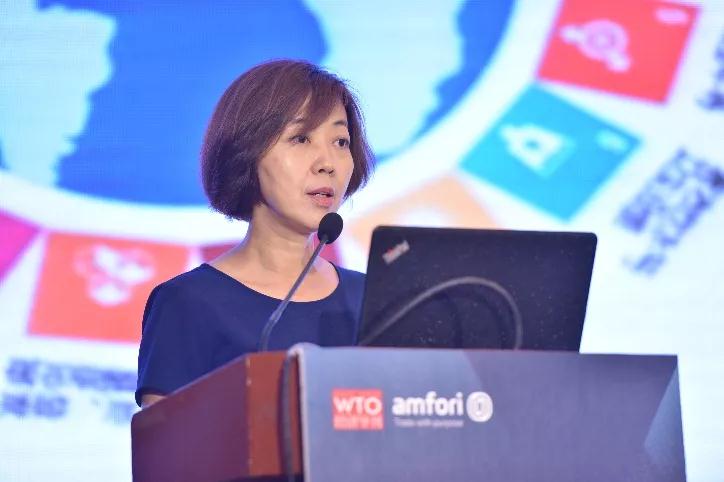
Mr. Nidal Zribi, Head of CSR and Sustainability, HEMA Far East, also shared views about the implementation of social responsibility standards from the perspective of supply chain compliance.
He said that code of conducts and standards cannot be implemented because of unrealistic requirements and lack of corporate capabilities. The improvement of compliance cannot be accomplished overnight. It is necessary to make timely adjustments to the goals and cooperate with the factories to form a gradual and virtuous circle for establishing transparency. This can also reflect the company's understanding of relevant standards and its flexibility to the challenges.
He advocated that all parties need establish close cooperation, and strengthen mutual trust and mutual supervision as well as learn from their predecessors' experience and knowledge, to create a transparent environment while promoting the development of global social responsibility.
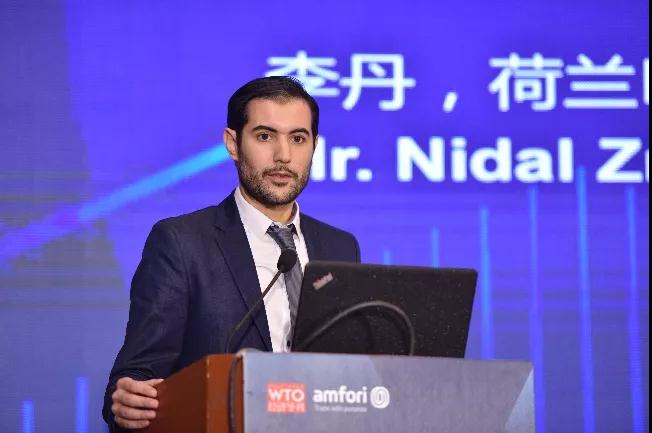
Ms. Ge Zhifang, Executive Deputy Director, Science and Technology Periodical Management Office, China Electronic Technology Corporation (CETC), pointed out that CETC's development of CSR standards is a process of continuous learning and renewal, promotion of integration of management and enterprises, and finally leading the formulations of industrial standard. She also shared the experience of CETC on the integration of CSR into corporate management while promoting the social responsibility standards development.
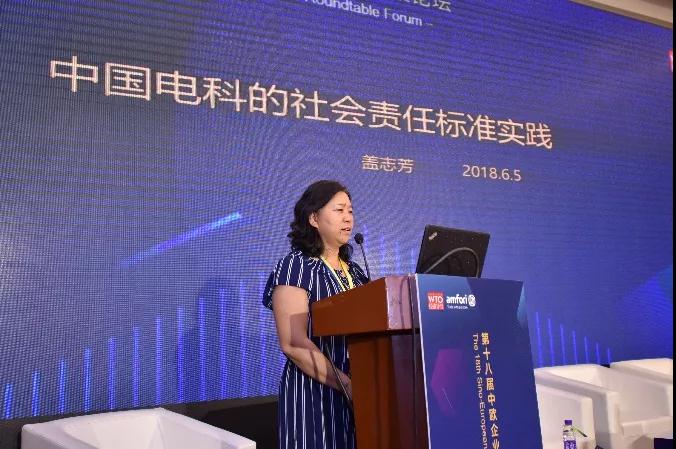
In the panel discussion, Mr. Yu Zhihong, Editor-in-hief of China WTO Tribune, invited the speakers to discuss the issues concerning how to use CSR standards to promote the sustainable development of the enterprises in the new era and they shared constructive suggestions from different perspectives.
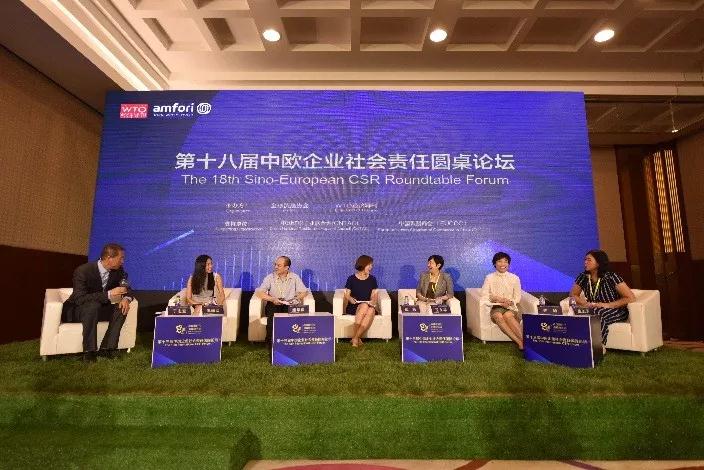
Ms. Chen Lixian,China Project Manager, ISEAL Alliance, said that standards and life are closely related. It connects everyone through the interaction of different fields and different companies. She encouraged the diversity of standards and advocated good practices in the standard process so that stakeholders can trust the standard and then use it.
Mr. Xiong Huajun, Deputy Secretary-General of Chinese Electronics Standardization Association, believed that the standard has played the role of a language and consensus. For the first level, it is a guide to social responsibility, and for the second level, it is the supporting tool and method, such as a social responsibility management system and a social responsibility evaluation index system.
Ms. Yan Yan said that because of so many challenges facing the development of the industry, CSR development should become the theme of the industry, and standards must be kept updating.
Ms. Wang Wenhua, Director of Sustainability Consumption Promotion Department, China Chain Store &Franchise Association (CCFA) introduced the key issues of promoting sustainable development standards in franchise operations from the perspective of industry development, and shared the experience of formulating guidelines and standards based on industry issues.
Ms. Xu Shen, Director of Public Affairs, Schneider Electric, said that sustainable development is the core strategy of Schneider Electric and it is seen as a business of the company. She also shared that the companies with awareness of sustainable development can realize various adaptive adjustments to adapt to society and gain the experience and practice fitting the development environment.
Ms. Ge also expressed that standardization is an eternal theme for enterprises. The leading enterprises in the industry should become models, develop a demonstration effect, and lead more industry enterprises to bring relevant requirements of social responsibility management guidelines to be implemented.
In the end, Mr.Yu Zhihong, summarized the forum:
The first is how to evaluate this standard. The need for standards is the consensus of the world. The complex worlds, diverse contents, diversified needs, and diverse issues all require corresponding standards to form consensus. In addition, standards should start from vision and goals, and be problem-oriented, which will help the achievement of goals and the resolution, and requires standards to play a greater role.
The second is how to develop and establish standards. The formulation process of standard is the process to gradually reach the consensus, a common business language system or management language system. It is also a process of participation, negotiation, and balance of multi-parties, which allows the standards to reflect the interests of all parties. In addition, it is a learning process. For many participating companies, it is a process of learning and understanding.
The third is how to use and practice standards. Standards face many challenges in the developing process. This includes the insufficient management capacity of SMEs and the thinking on how to bring benefits to the business. These benefits include both commercial and managerial capacity building as well as management benefit. At the same time, the standards are also facing application challenges. Standards need to be updated with the times, and reflect the characteristics of different industries and the characteristics of different stages of the industry.